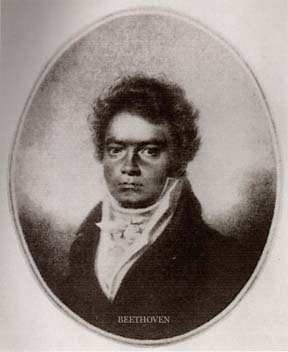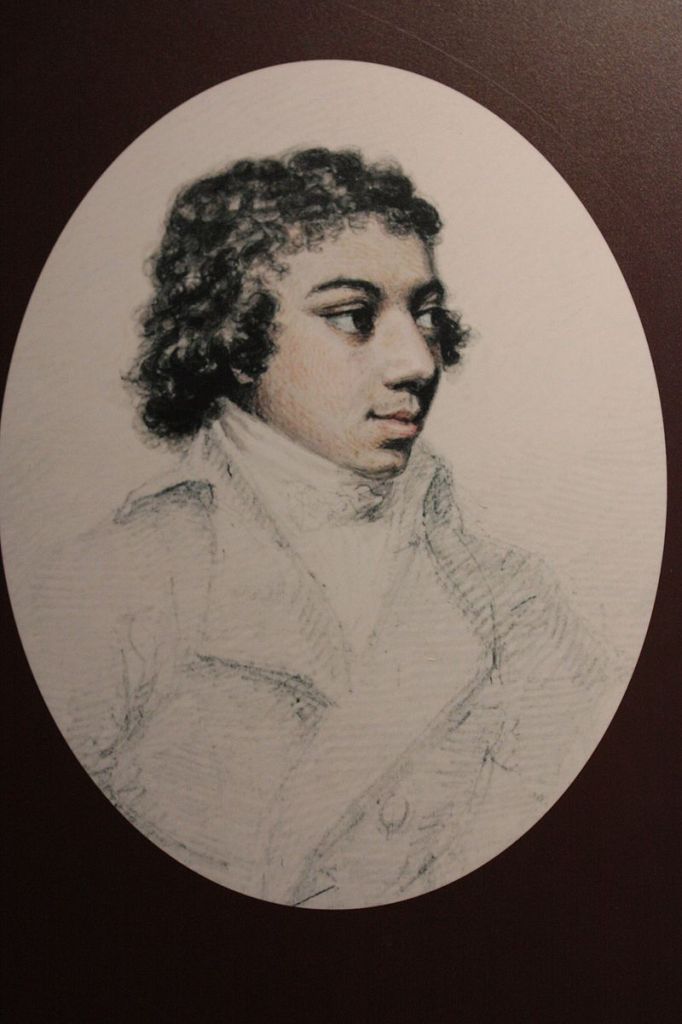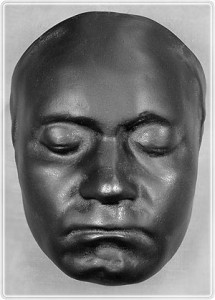When I think about classical music and racism, the second thing that springs to mind – after Wagner of course – is the surprisingly persistent question about Beethoven’s ethnicity. In three words: was Beethoven black?

Yes, Beethoven was black
The story about black Beethoven peaked in the 1970s – together with the Black Power movement. Today, it regularly resurfaces on the internet. But its origin goes back to at least the beginning of the 20th century. You could even say: to Beethoven’s own lifetime.
“Why would an African guy named Beethoven turn up in 18th century Austria?”
You see, the doubts about Beethoven’s ethnicity do have some historical grounds. The people who knew him said he had ‘negroid traits’, bearing a ‘strong resemblance to a mulatto.’ During his youth, he was called ‘the Spaniard’ because of his dark complexion. You can even see it in some of its portraits, right down to the kinky hair.

And there’s more: during the last part of his life, Beethoven lived in the Schwarzspanierhaus – which you could translate as the House of the black Spaniard.
Now you may be asking yourself: ‘Why would an African guy named Beethoven turn up in 18th century Austria?’ Well, Beethoven’s ancestors came from present-day Belgium, which had been occupied by Spaniards for almost two centuries. Since Spain had strong ties with North Africa, it’s not impossible that Beethoven was the happy result of an affair between a local maiden and a Moorish soldier.
And let’s not forget the rumour that he was the lovechild of Frederik the Great and his black chamber maid …
No, Beethoven was not black
Convincing stuff! Were it not for too many unanswered questions. Such as: why do most Beethoven portraits clearly show a white man?
And why aren’t there more eye-witness reports about Beethoven the Moor rising to the rank of Europe’s most celebrated composer? It’s not because people were blind to racial differences. Beethoven himself called his Afro-European friend, the celebrated violinist George Bridgetower a mulattico lunatico.

“Classical music is an almost exclusive lily-white affair. Wouldn’t it be great if its boldest innovator turned out to be of African descent?”
Like any conspiracy theory, the story about Beethoven’s ethnicity is entertaining but doesn’t hold up to closer inspection.
The House of the black Spaniard – actually Spaniards – was named after the Spanish Black Monks who occupied it long before Beethoven.
Those remarkable portraits are bad reproductions.
And the black people in Belgium are not descendants from Spanish occupiers, but more likely from African people brutally enslaved by the Belgians themselves – long after Beethoven’s grandfather left the country.

Was Beethoven black? Why should we care?
It’s easy to see why this story is so attractive. Classical music is an almost exclusive lily-white affair. Wouldn’t it be great if its boldest innovator turned out to be of African descent?
But even with the best intentions, rewriting history on false grounds is never a good idea. Besides, it’s not necessary. Many black musical innovators of the 18th century will forever remain nameless. But those of the 20th century are well on their way to the eternal pantheon of music.
Who knows, in 200 years some people might feel the need to claim that Duke Ellington was white. Or – and you really should have seen this one coming – Michael Jackson.
Want to keep up with my classical musings? Enter your email address and click subscribe.
The Spaniard? how insulting that lie is, come back with real evidence… but there isn’t so good luck with that.
LikeLike
Well, if you translate the actual name of the building that he last resided in which was ‘Das Schwarzspanierhaus’, which is German. Firstly ‘Das’ means The. Next, ‘Schwarz’ translates to black. Next, ‘spanier’ translates to Spaniard. Then lastly ‘haus’ translates to house. Thus having the name ‘The Black Spaniard’s House’. I know western peoples can’t take that he was black but get over it. These are just facts, and western peoples were whitewashing back then and they are white washing now. Explain why Beethoven was needing to wear white powder on his face then?? Also why would he have the nickname ‘the spaniard’ understanding the context of the time period of the people who were in the Iberian peninsula for over 700 years though? Just think about your Dark Ages and who brought westerners out of the Dark Ages. Food for thought
LikeLike
Your evidence of why this is not true is very lacking. If you want to disprove this “conspiracy theory” please offer concrete evidence.
LikeLike
Hi Carol. Thank you for you reaction. I don’t think it’s possible to prove, with 100% certainty, that Beethoven was white or black. There are no photos of him, no known descendants, … What we can say for certain is that he lived in Bonn and Vienna, cities which were, at that time, almost exclusively white. In his own writings, he never identified himself as black. Not one contemporary source identifies him as black. And all known portraits show him as white man. So I think it’s at least reasonable to assume that he was white, don’t you?
LikeLiked by 1 person
Pingback: Was Handel Gay? | Classical Musings
“It’s easy to see why this story is so attractive. Classical music is an almost exclusive lily-white affair. Wouldn’t it be great if its boldest innovator turned out to be of African descent?”
I’m so tired of this sort of anti-White rhetoric. No, it wouldn’t be great. White people have created the worlds highest forms of art and have masterpieces in all fields of interests and human endeavors. That’s great and that ought to be Celebrated and appreciated by people of all stripes, and serve as a source of pride for White people of all ages and cultures.
LikeLike
Pingback: Why Beethoven wrote the best music ever | Classical Musings
Pingback: Beethoven and AI: the battle of the superhumans | Classical Musings
Pingback: Beethoven meets metal (and they seem to get along) | Classical Musings
Pingback: Review: Schubert Unfinished by Concentus Musicus Wien | Classical Musings
Pingback: Time to hit the brakes on Beethoven? A dive into whole-beat metronome practice (WBMP) | Classical Musings